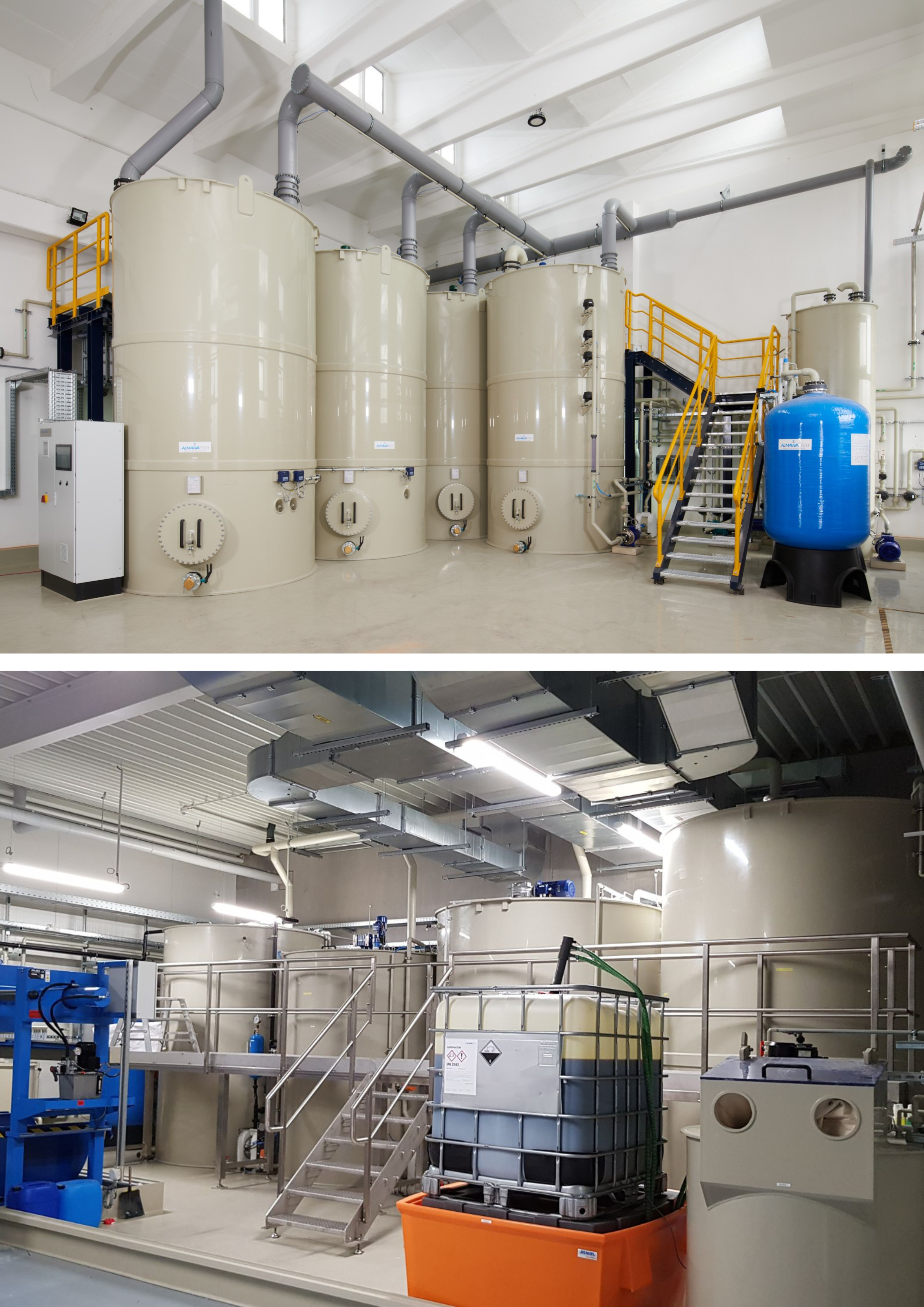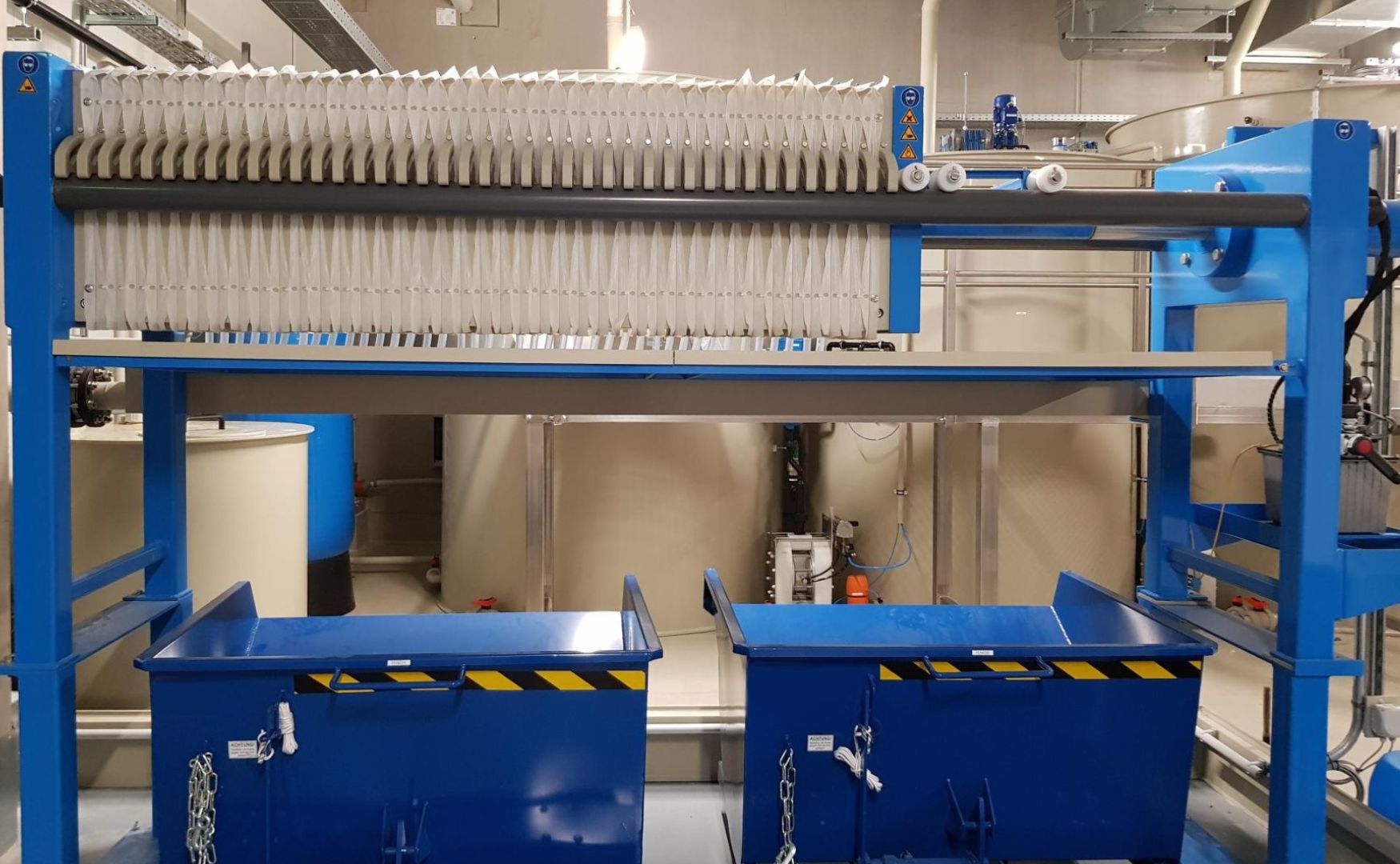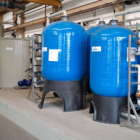Bentonite is a naturally occurring, highly swellable clay mineral consisting mainly of the clay type montmorillonite. It is characterized by its high adsorption capacity and ion exchange capacity, which makes it a versatile material in various industrial applications, especially in water and wastewater treatment. In practice, bentonite is used to remove solids and pollutants from liquids by agglomerating fine particles into larger flakes, thus facilitating separation processes.
Table of contents
Technical background
Bentonite consists of fine layered structures that can store water and ions in their interstices. This swellable structure gives bentonite its extraordinary ability to absorb and bind large quantities of water, which leads to an increase in volume (swelling). In wastewater treatment, bentonite is used as a conditioning agent to improve the physical properties of the sludge and facilitate the separation of solids and impurities. This is achieved by adsorption and ion exchange, whereby pollutants, heavy metals and organic compounds are trapped in the bentonite and can be removed from the wastewater by precipitation or flocculation.
Use in waste water treatment
Bentonite is used in industrial wastewater treatment primarily as a flocculant and conditioning agent. Its main functions include:
1. flocculation and separation of solids
Bentonite helps to bind finely dispersed particles in wastewater and form larger flocs, which can then be more easily removed by sedimentation or filtration. This is particularly useful for wastewater that contains high turbidity or fine solid particles.

Photo: CP system ALMA CHEM MCW for the elimination of heavy metals, AOX, hydrocarbons and cyanide
2. sludge conditioning
In the sludge dewatering bentonite is used to improve the structure of the sludge and facilitate water removal. The use of bentonite results in a firmer and more stable filter cake, which can be dewatered and further treated more easily.

Photo: ALMA CFP chamber filter press for dewatering wastewater sludge
3. removal of heavy metals
Due to its ion exchange capacity, bentonite can be used effectively to remove heavy metals such as lead, mercury, zinc and copper. The heavy metal ions bind to the negative charges of the montmorillonite and are thus removed from the wastewater.
4. detoxification and neutralization
Bentonite is able to adsorb organic and inorganic pollutants, making it an effective means of detoxifying industrial wastewater. In combination with other precipitants and flocculants, bentonite can be used to optimize chemical wastewater treatment.
Use of bentonite in the ALMA AQUA wastewater product series
In the ALMA AQUA wastewater product series from ALMAWATECH, bentonite is used as an essential component of our conditioning agents for chemical-physical wastewater treatment used. These products are designed to ensure efficient removal of solids, organic pollutants and heavy metals while improving sludge properties.
Our ALMA AQUA bentonite-based conditioning agents are used in the following applications in particular:
Precipitation and flocculation processes: In combination with precipitants and flocculants from the ALMA AQUA wastewater product line, bentonite supports the formation of stable flocs that enable the rapid and efficient separation of pollutants. This process is often used in metal processing, surface treatment and the chemical industry, where heavy metals and organic pollutants need to be removed from wastewater.
Sludge dewatering: In industrial wastewater treatment plants that rely on efficient sludge dewatering bentonite as a component of our ALMA AQUA products improves the filtration performance and reduces the water content of the sludge. This leads to lower disposal costs and improved handling of the dewatered sludge.
Advantages of using bentonite in wastewater treatment
High adsorption capacity: Bentonite is able to adsorb a large amount of pollutants and solids, making it an effective flocculant.
Improvement of sludge properties: The use of bentonite makes the sludge more stable and easier to dewater, which increases the efficiency of sludge dewatering and reduces disposal costs.
Wide range of applications: Bentonite can be used in various industries, from metal processing and the food industry to the chemical industry, to remove organic and inorganic pollutants from waste water.
Environmentally friendly solution: As bentonite is a natural clay mineral, it is an environmentally friendly alternative to synthetic chemicals, which increases its attractiveness in sustainable wastewater treatment.
Conclusion
Bentonite is a versatile and efficient material that is indispensable in wastewater treatment as a conditioning and flocculating agent. With its high adsorption capacity, its ability to bind heavy metals and its efficiency in sludge dewatering, bentonite offers numerous advantages for industrial applications. The ALMA AQUA wastewater product rangefrom ALMAWATECH uses bentonite in combination with other chemical treatment agents to ensure optimum wastewater treatment that not only complies with legal limits, but also reduces resource consumption and lowers operating costs.
For further information on the use of bentonite in your wastewater treatment processes and the selection of suitable ALMA AQUA products, please do not hesitate to contact us. Contact us for advice and customized solutions for your wastewater treatment requirements.







